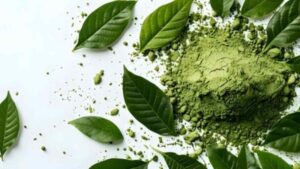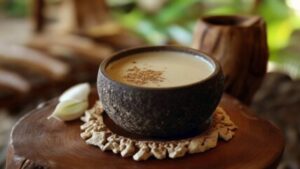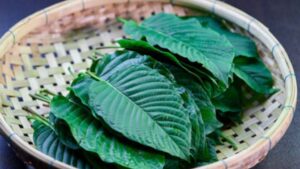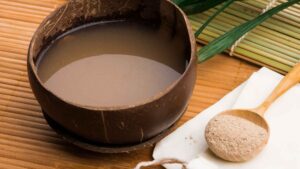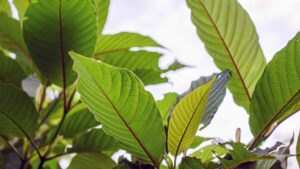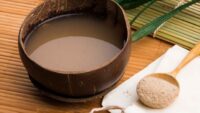As long as you were researching mood, energy, or relaxation-enhancing natural supplements, you have likely seen both kratom and kanna. Although it is common to hear about them together, these two plants are pretty different and have numerous functional mechanisms and the services they provide.
If you want to know about their effects, find out whether you can combine them with others, or simply learning more about the rising kratom industry, this guide will simplify all you need to know about the use of kratom vs kanna in the most straightforward light.
What is Kanna?
The flowering succulent Kanna provides fascinating advantages to users. Bushy, well-drained hills form the plant’s natural habitat in South Africa. Traditional healers from the San and Khoikhoi tribes have used this plant for medicine for many generations.
Consumption of Kanna produces three significant properties that combine mood elevation and stress relief with anxiety reduction and relaxation effects, along with pain reduction.
Through many successive generations, humans have used kanna as a medicinal plant to achieve health and happiness.
People plainly express the meaning of this plant through its common street name. According to African traditions, the term kanna refers to a chewing herb because indigenous populations chewed it as a habit.
Sceletium tortuosum is the Latin name, which reveals additional information about the plant.
After the drying process takes place, the leaves develop a framework that resembles bones. The Latin term sceletus describes leaf veins that make them conspicuous for identification.
Traditional Uses of Kanna
As a plant, Kanna maintains connections to its history back through antiquity. South African traditional herbal medicine practices consider Kanna as an important plant substance that San hunter-gatherers, alongside Khoi people, have employed for centuries.
Traditional users consumed kanna for treating both physical injuries and for their emotional and spiritual needs.
Dried kanna undergoing fermentation served as a common daily substance for people who consumed it to face dehydration and gain added vitality. Kanna was treated in traditional South African social customs just like modern people approach coffee and alcoholic beverages today.
The medicinal use of kanna among traditional communities included its function as a remedy for toothaches and headaches, and treatment of abdominal pain. Local populations applied kanna for double purposes: they used it as an active ingredient in pain management and in local anesthesia.
Until now, the medicinal qualities that people most value in kanna consist of its mood-uplifting and anxiety-reducing properties, leading to spiritual contentment.
Research today puts these properties under scientific evaluation by showing that kanna can be an effective therapeutic agent against depression and anxiety, along with other mood disorders. Historically, kanna holds cultural significance as a strong spiritual healing remedy.
Uses of Kanna
Kanna expanded its market to wellness consumers worldwide because users view it as a contemporary medical plant beyond historical usage.
People use this natural substance as a preferred solution because it enables emotional and mental management. Below are some of the most common modern uses of Kanna:
1. Mood Enhancement
Kanna’s most established property involves its ability to uplift mood patterns in human beings. The component Kanna interacts with brain serotonin levels, leading to sensations of happiness together with feelings of relaxation. Consumers reach inner peace thanks to the effects of Kanna.
2. Stress and Anxiety Relief
Patients choose Kanna as their preferred solution because of its relaxation properties to manage their anxiety and stress effectively.
The compound provides a regulatory function that helps manage the body’s stress reaction, therefore creating tranquil and balanced states.
3. Cognitive Support
Available research indicates Kanna might benefit cognition through its ability to improve focus and mental clarity. The substance presents a possibility for users aiming to boost productivity, together with preserving mental clarity during daily activities.
4. Social and Emotional Well-Being
Throughout history, Kanna has served as a traditional remedy for developing better social bonds among people and improving emotional connections.
Kanna produces mood-enhancing impacts that enhance the enjoyment level while improving the depth of social experiences.
Potential Kanna Benefits
Stress and anxiety management has been the traditional purpose for which people have used kanna. People currently use kanna as an active compound for stress reduction, but combined administration provides cognitive support in addition to anti-anxiety benefits.
Currently, there is insufficient scientific evidence that shows the effectiveness of kanna extract supplements alongside other interventions.
Several research investigations on the effects of kanna are scarce, and most studies examine Zembrin as their primary subject. Here’s more about the potential effects of kanna:
1. Potentially Helps Treat Depression
Research involving animals, along with small human studies, has presented some proof that kanna displays antidepressant capabilities in patients presenting with Major Depression alongside Depression-related pain.
It is necessary to conduct additional research before understanding how well kanna works as a depression treatment and what unwanted side effects (including muscle control issues) might negatively impact its mood-enhancing properties.
2. May Help Relieve Anxiety or Stress
The main recognized effect of kanna consists of achieving relaxation while it works to reduce signs of anxiety, alongside managing stress episodes and depressive symptoms.
Research supports how Sceletium wallichi functions to create wellness feelings and assists in treating both depression and clinical anxiety, and mild daily depression.
Anxiety symptoms decreased in adults who participated in a research study that used Zembrin under double-blind placebo conditions. The brain’s amygdala seems to respond to kanna intake, according to research findings.
3. Improves energy and prevents fatigue
Kanna helps reduce body tension and stress; thus, you may experience better, restful sleep while gaining increased daytime energy.
Historically, the kanna plant was also used to quench thirst and for healing, social, and spiritual purposes.
Active Ingredients of Kanna
Kanna is packed with important plant compounds called alkaloids. Plants contain natural compounds that produce different effects on human physiology.
Kanna compounds travel to the central nervous system to affect brain and spinal cord receptors, presumably explaining why people use kanna for mood improvement.
The alkaloids present in kanna showed effectiveness in serotonin reuptake inhibition according to double-blind analysis studies.
Properties of Kanna
- Antimicrobial: Helps fight off harmful microbes.
- Anti-inflammatory: Soothes inflammation in the body.
- Antioxidant: Protects cells from damage caused by free radicals.
- Antidepressant: Lifts mood and promotes feelings of well-being.
- Anti-anxiety: Relieves stress and anxiety.
- Anti-HIV: Shows potential in fighting against HIV.
- Radical scavenging: Clears out harmful radicals from the body.
Can Kratom and Kanna Be Taken Together?
Given the different mechanisms and effects, some users wonder if kratom and kanna can be taken together. While there is no extensive scientific research on their combined use, there are some important considerations:
- Potential Interactions: Kanna’s serotonergic activity combined with kratom’s opioid receptor effects could theoretically lead to unpredictable mood or physiological responses.
- Safety Concerns: Both substances affect the brain’s chemistry, so combining them without professional guidance may increase risks such as serotonin syndrome or other side effects.
- Lack of Research: Because of limited studies, it is generally recommended to avoid combining kratom and kanna until more is known.
Kratom and Kanna in the Wellness Market
The Growing Kratom Business
The kratom business has expanded at a high rate, particularly in the United States, where it has an estimated market of a billion dollars.
The growth is supported by the growing interest of consumers in using natural means of pain elimination, mood improvement, and energy boosting.
- Product Variety: Kratom products range from powders and capsules to tinctures and extracts.
- Consumer Demand: Despite challenges, kratom remains popular due to its versatile effects and natural origins.
Kanna’s Emerging Popularity
Smaller in scale, kanna is of interest as a natural mood enhancer and anxiolytic. It possesses a special serotonergic profile that makes it appealing in cases of individuals who have looked the alternative alternative to the use of opioid-like substances, but in cases where opioids are dangerous.
- Product Availability: Kanna is commonly sold as capsules, powders, and extracts.
- Niche Market: It appeals to users interested in gentle mood support and social ease.
- Research and Awareness: Growing interest is driving more research and consumer education.
Final Thoughts
Kratom and kanna have benefits associated with centuries of heritage. When the users of these botanicals understand the differences between these botanicals, they can be able to make informed decisions specific to their wellness needs.
No matter which of the two options you are more inclined toward, kratom alleviating pain and bringing stimulation to the body, or kanna stabilizing the mood and calming down, responsible consumption and medical advice when necessary should always be taken into account.
With the kratom industry constantly developing and the kanna already having gained some popularity worldwide, being informed about the effects, safety, and legality of these plants will allow you to move within the world of natural supplements with certainty.
More Readings:



